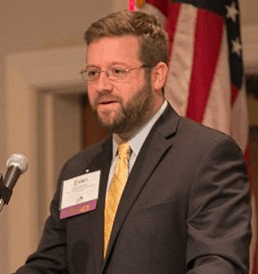 Virginia officials cannot get broadband providers to reveal full details about their actual service areas, so the state now believes cable and phone companies will be more forthcoming if they can quietly share that information with each other, keeping the state government in the dark.
Virginia officials cannot get broadband providers to reveal full details about their actual service areas, so the state now believes cable and phone companies will be more forthcoming if they can quietly share that information with each other, keeping the state government in the dark.
Virginia Public Radio reports that there are more than 600,000 residents that have no access to high-speed internet, because the state’s dominant telecom companies — Verizon, Cox, and Comcast, choose not to provide service. But the state’s efforts to fund rural broadband projects to reach the unserved have been repeatedly complicated by the lack of accurate information about who actually has access to broadband, and who does not.
“If you call them and say, “I live at this address can I get connected?’ They can tell you yes or no. They will not share that information nationally,” Evan Feinman, Virginia’s chief broadband advisor, told VPR.
State officials cannot get straight answers because telecom companies treat their service areas as confidential and proprietary business information. Broadband availability maps have been criticized as inaccurate as well, with providers volunteering the information with little, if any, independent verification. That creates problems when a would-be provider for an unserved area completes a broadband grant application that results in immediate objections from incumbent providers that claim they already offer service in the proposed project’s service area.
Feinman believes that if the state steps out of any referee roll of verifying what areas actually get service, providers will suddenly begin sharing service information with each other.

Feinman
“Comcast is interested in helping us avoid having to fund an overbuild… if they don’t bid on covering the rest of the county then they’re not interested in covering the rest of the county,” Feinman explains. “So when another ISP comes in I have high confidence that when that ISP asks Comcast ‘Hey I want to cover the rest of this county, how much of that do I need to do?’ Comcast will share that information.”
That is not the experience of other states, where providers like Charter Communications treat any disclosure of their rural broadband service areas and intended expansion areas as “highly confidential information.” In New York, companies will share information with the state, especially when state taxpayers are helping to subsidize their costs, but under no circumstances will they share service and expansion intentions with other providers, calling them competitors.
That would leave Virginia taxpayers footing the bill for rural broadband funding, without the state being a fully informed partner, able to audit projects and their service areas.
This year, Virginia intends to spend $19 million on rural broadband funding, a comparatively tiny amount for the number of residents still lacking service (New York spent over a half billion dollars), but still an increase over earlier years. But where those funds are spent may now be up to the same cable and phone companies that have never been willing to offer service in those areas before, and may not be too interested in letting someone else serve those areas either.
The stakes are high, as Feinman pointed out.
“I have conversations with corporate leaders who say, ‘Well am I going to be able to get in touch with my manager at 1 am and will he or she be able to send me a document?’ If the answer is no that community’s off the list,” says Feinman.
Virginia could follow the lead of Wall Street analysts that have conducted detailed studies by using a provider’s own website to query service availability and information for each individual address in a proposed service area. It would be a labor intensive project, but one that would put providers on record about whether they actually offer service or not.
Virginia Public Radio reports the state’s goal for universal broadband has been hampered by a lack of accurate broadband mapping. Now the state proposes to allow cable and phone companies to sort it out themselves. (1:43)


 Subscribe
Subscribe